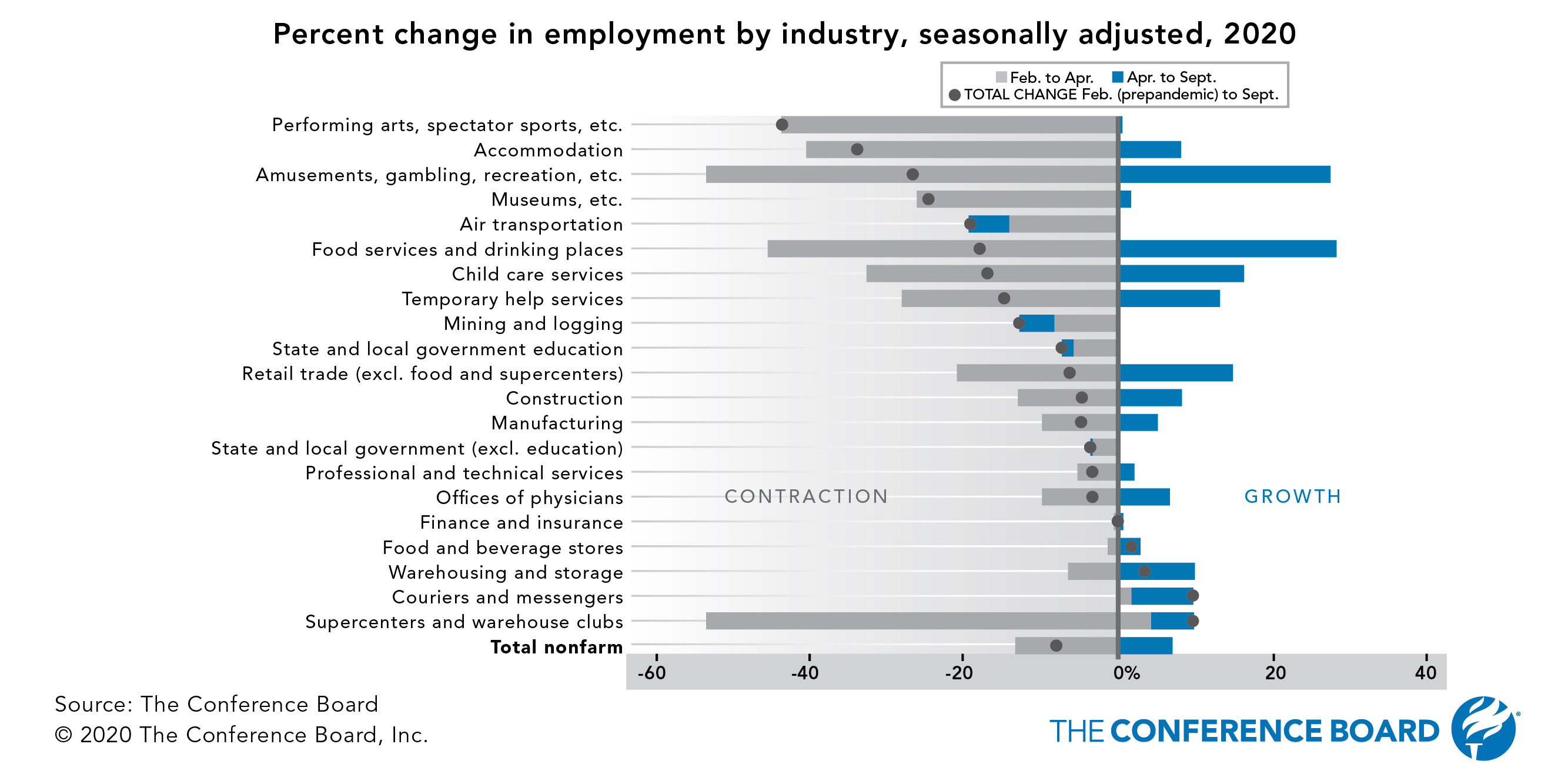|
The economy added 661,000 jobs in September, marking the first
time since the pandemic started that job gains have fallen below one million.
Although the pace of the labor market recovery is generally slowing, certain
sectors are recovering faster than others. Hiring remains depressed in
service industries that continue to suffer under social distancing, such as
entertainment, travel, lodging, full-service restaurants, and childcare.
Furthermore, state and local government revenue shortfalls due to the pandemic
have led to continued job cuts in the public sector, especially in education.
Consumption of goods, especially durable goods, has been booming due to
people’s inability or fear of consuming in-person services. As a result,
employment growth was better than average in industries related to the
production, storage, sales, and delivery of goods. Retail was an exception,
as some retail industries experienced a large drop in employment because of
the accelerated shift to online shopping. The surprisingly strong activity in
residential real estate, partly due to historically low interest rates, led
to an unusually low drop in construction employment in this recession.
Finally, deepening home-centric lifestyles have fueled employment in grocery
stores and supercenters, and the ability to work from home has saved many
professional jobs. A downside risk is the potential for furloughs to
translate into permanent layoffs. Indeed, an uptick in layoff announcements,
especially in the airline and municipal government sectors, portend this
possibility.
|

No comments:
Post a Comment